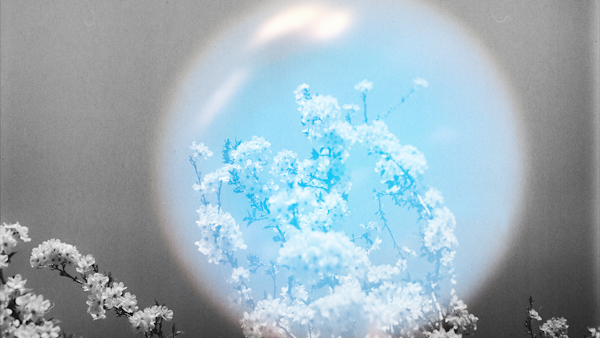Shock and Awe

Matt Klein, the head of foresight at Reddit and creator of the newsletter Zine, thinks the world is getting weirder. If “weird” describes societal norms being turned on their head—if it means being “an outsider in an insider world,” as Olga Khazan, the author of the book Weird, claims—then Klein is definitely onto something.
These days, life can seem downright dystopian, as though we’re outsiders in an outsider world, unable to make rhyme or reason out of anything. The shock we’re experiencing now can’t be summarized as present shock, which happens when we become blindly obsessed with the present moment. Nor is it a form of future shock, which happens when we feel that change is taking place too quickly. Instead, the shock we’re feeling today is an affront to our most basic understanding of reality. And the most shocking thing about it:
It’s not “Runway of Power” or other deep fakes that distort our concept of reality. It’s reality itself.

Think about the events of the past few weeks:
• 31 people were injured, and one died, when passengers aboard a Singapore Airlines were thrown around the cabin due to severe turbulence. Similarly, 30 passengers were injured on a transatlantic Air Europa flight headed to Montevideo. The growing frequency and intensity of turbulence is attributed to global warming.
• Extreme heat caused the deaths of more than 1,000 people in Saudi Arabia during the Hajj pilgrimage to Mecca. Heat waves are becoming a common phenomenon worldwide. Each of the past 13 months has been the hottest on record.
• A failed software update (by a company that provides cybersecurity solutions to more than 300 of the Fortune 500 companies) disrupted the world’s digital infrastructure, grounding civilization for several days.
• An 81-year-old U.S. president ceded to public pressure and dropped out of the upcoming election, which is a mere 103 days away.
• A convicted felon/presidential candidate survived a horrific assassination attempt and, with blood trickling down his face, instinctively seized the opportunity to elevate himself into a messianic figure for his followers.
You could call all of these events surprising, but I’m not sure any of them could be convincingly labeled unexpected. Such is the paradox of our times. While Black Swan events such as 9/11 or the Covid pandemic used to disrupt the regular run of things, we are now thrown off course by predictable events waiting in plain sight. These incidents are not irregular manifestations of the inconceivable, but regular manifestations of the strange. They are not weird outliers; they are the symptoms of a reality that’s become weird to its core. Instead of shocking the system, they reveal our enduring state of systemic shock.

If reality is getting weirder, it’s becoming shorter, too.
Reality is now “reality shots”—micro-moments of a high-speed train wreck culture that rushes us from one event to the next. We knock back the news like champagne at a wedding, downing one catastrophe after another, hardly realizing we’ve started to slur our words and can no longer see straight. Events become history almost as soon as they occur. They pass too quickly to sustain our attention, and rather than question these swift disappearances, we think “thank goodness that’s over!”
“Reality no longer has the time to take on the appearance of reality,” wrote the postmodern French philosopher Jean Baudrillard. “It no longer even surpasses fiction: it captures every dream even before it takes on the appearance of a dream. History that repeats itself turns to farce. Farce that repeats itself turns to history.”
Baudrillard could have been writing about Trump, his “second coming,” and the many other features of our weird times. All this weirdness looks like bad-quality science fiction, a dystopian vision replayed as farce.
If that’s the diagnosis, what is the cure? What is the counter-shock to reality shock?

Finding awe in the dark
Children don’t take anything about the world for granted. It’s all new to them—they haven’t figured out how the cogs turn, how the machine rumbles—and so they perceive their surroundings with wonder and curiosity. They can’t fall back on assumptions; they haven’t learned how to make inferences. If they’ve had a chance to form biases, they’re probably about brussel sprouts or bedtime. They typically ask something like 300 questions a day.
We can learn from their ability to feel a sense of wonder.
Berkeley psychologist Dacher Keltner believes there’s a direct connection between wonder and awe. In his latest book, Awe: The Transformative Power of Everyday Wonder, he defines awe as “the feeling of being in the presence of something vast that transcends your current understanding of the world.”
Awe is often triggered by an extraordinary spiritual or emotional moment that creates a sense of flow with the universe, a collective effervescence, or a deep, romantic bond with nature—experiences that shrink the self and elevate the soul. A trip to Antarctica, a night under the stars in the desert, a rave, a Taylor Swift concert, a religious ritual, a football game, a visit to the Hagia Sophia. Awe can be the “overview effect” astronauts are said to experience when looking down on the Earth or the ‘bouncing’ choreography that Dutch football fans performed at the Euros. It can be as simple as the feeling you get when gazing up at a full moon.
Even though awe has a dark side, it can serve as the ‘good’ counter-shock. Like shock, awe implies the feeling of being overwhelmed. Unlike shock, however, which makes us anxious, awe can ease our minds. Awe is good for our mental health. One study found that a sense of wonder generated during walks lessened anxiety and depression, while increasing feelings of joy.
But awe is more than an individual experience. As Keltner suggests, awe can mobilize us toward social progress. It can help us address the systemic shocks that have made our reality so weird. In fact, awe may be the key to solving the polycrisis, i.e., the compounding impact of climate change, political division, social isolation, and the fragility of our digitized lives. House member Laura Francois, founder of the research collective Awe Exchange, who hosted a “Room of Awe” at our recent festival in Tangier, thinks that awe can mobilize and empower social action. She’s specifically interested in what might happen if eco-anxiety were replaced with eco-awe.
What does all this mean for business? And for beautiful business in particular?
Instead of helping teams and customers absorb relentless reality shocks, companies must create awe. In an era when people trust businesses more than they trust governments and nonprofits, companies are uniquely poised to spark wonder and curiosity. Whether they advocate for climate action, aim to create workplaces that foster connection and belonging as powerful tools against loneliness and social isolation, or seek to promote overall social progress, awe is the counter-shock to a system of shocks. Awe is fleeting and yet, it can wake us from the daze of confusion, shake us from paralysis, and motivate us to create a new reality beyond the latest shock.
Tim Leberecht

Writing in a Crowded World

On the Beauty of Distraction

I Don’t Resonate with You

Business Must Speak a New Language

What Makes For a Real Community

